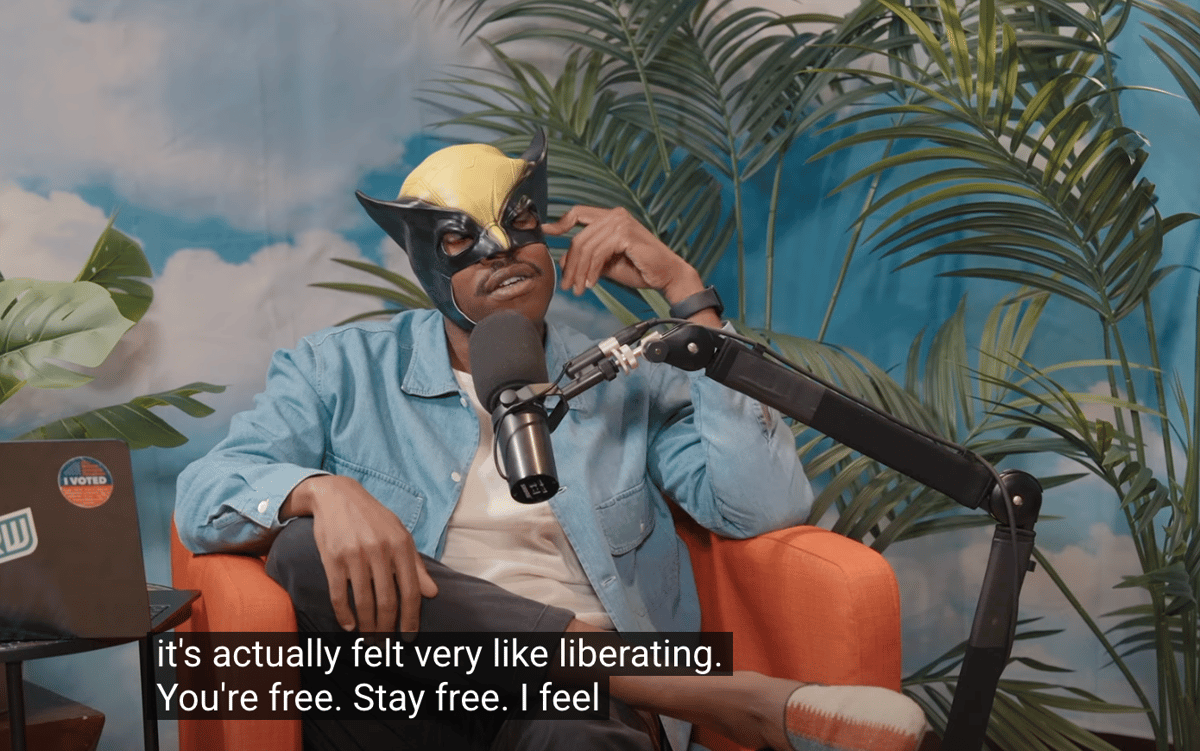
Last year during Oscar season, I waited weeks, if not months to go see The Brutalist. I don’t *believe* in films that long, and from what I had seen, I just didn’t feel it would be my kind of movie.
I was right. The Brutalist was, in fact, brutal. But what stuck with me longer than my displeasure with that film was a movie trailer I endured before The Brutalist even began. It was for the 2025 Marvel film Captain America: Brave New World. The film stars Anthony Mackie, an actor I adore. And I’d heard that this Marvel film was also attempting to tell a story about race and what it means to be a Black hero, which had me excited. But I distinctly remember leaning over to my friend Tyler as the trailer played and saying something along the lines of “This CAN’T be serious.” The trailer felt like a farce. I laughed at its absurdity.
My gut instincts were right. Captain America: Brave New World flopped at the box office and received horrendous reviews. Vanity Fair said of the movie: “Brave New World is a bunch of characters wandering around in search of meaning, the Marvel machine creaking loudly as it tries to whip up some grand mythos around these B-tier figures.”
That movie, that trailer, and those reviews had me asking a pretty big question: Is Marvel washed? Is the film franchise that fundamentally changed the way Hollywood works taking its last gasps right in front of our eyes? I asked this of two very smart journalists on the show this week: Tracy Brown, an entertainment reporter at The Los Angeles Times, and Kyle Buchanan, movie and awards season reporter at The New York Times.
Tracy and Kyle don’t think Marvel is dead, but they think the franchise has been in a rut. More flops, more poorly received films, and an increasingly large number of Marvel movies and TV shows to keep up with. (Marvel fatigue is real.) And then there’s the central Marvel problem: all these storylines, in all these movies and TV shows, need to fit together, which gets harder and harder to do with the more content that gets made. Tracy says that may actually be Marvel’s lasting legacy in Hollywood: convincing people that movies should have plotlines that hold together film over film, the way TV show plotlines hold together episode after episode, spinoff series after spinoff series. “[The] Marvel Cinematic Universe, despite having cinema in its name,” she told me, “was the start of the TV-ification of movies.”

There’s a chance that the newest Marvel movie, Thunderbolts, might pull Marvel out of its rut. The movie comes out this weekend, has been receiving decent reviews, and has a star-studded cast including Florence Pugh and Julia Louis-Dreyfus. (Full disclosure: I’ve seen the film. And I like it.)
But I also couldn’t help comparing Thunderbolts to the last movie I saw in theaters before it: Sinners. The Ryan Coogler/Michael B. Jordan vampire/race/music thriller blew past its box office expectations opening weekend and stands at a 100% rating on Rotten Tomatoes. It also saw its box office take fall by only 6% in its second week in theaters. The film is a certified cultural phenomenon, and it does something Marvel hasn’t seemed to do on the big screen in a while: tell an entirely NEW story. And Sinners did what Captain America: Brave New World tried and failed to do: make an action film that grapples with the complexities of Blackness and heroism that is actually enjoyable.
Perhaps the biggest legacy of Marvel will be the way it convinced the entire industry to lean on “existing IP” to create movies and TV. That is, telling more stories about characters and plots that people already know, be it comic book heroes, or more recently, toys like Barbie. It’s worked for so long, but increasingly, it seems to give diminishing returns, especially when standing right next to stories like Sinners, which find ways to please the masses
“I never underestimate Hollywood's ability to learn the wrong lesson,” Kyle told me when I asked if Sinners’ success pointed towards a new direction for Hollywood. “Yes, I would love to think that they're learning something from Sinners,” he told me. “I think what they're learning from is Minecraft [the movie adaptation of the wildly popular video game, which has become the highest grossing film of the year]. And if there's any threat to Marvel's dominance, it is the fact that the gold rush of creating IP from video games becomes the dominant thing instead of comics.”
Check out this week’s episode to hear more of Tracy and Kyle on Marvel, as well as more of my ranting. And if you’ve seen any of the films I’ve mentioned, would love to have you write back to this email with your reviews. In the meantime, happy weekend – and go see Sinners if you haven’t already. It’s the future of American film! (At least I hope so.)
— Sam